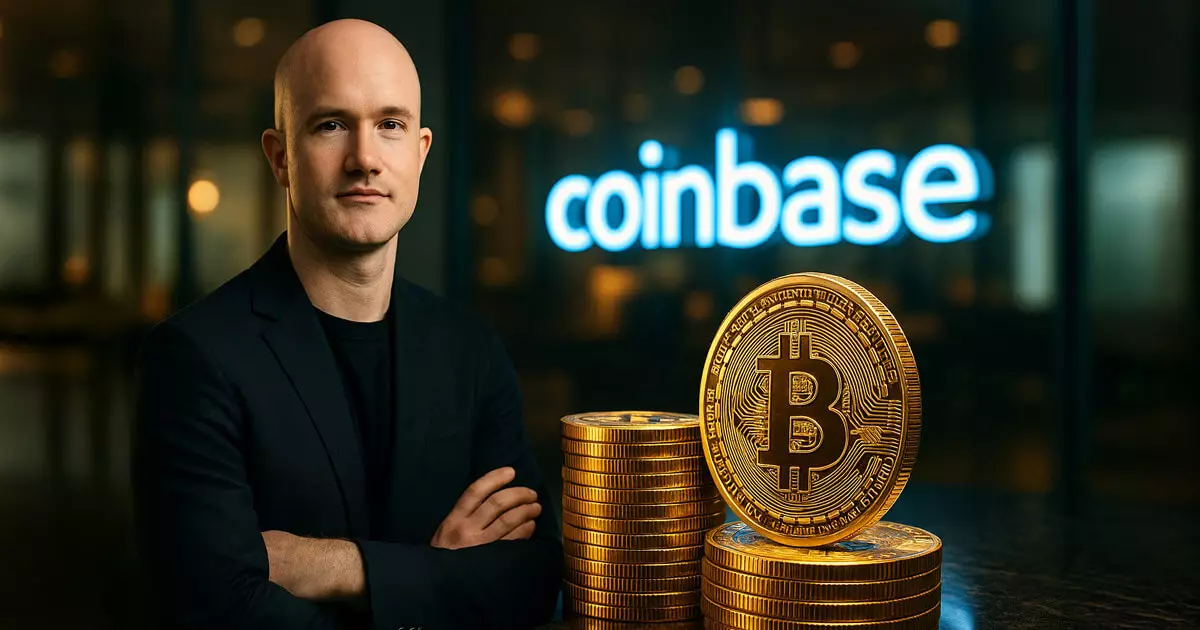In recent announcements, Coinbase CEO Brian Armstrong revealed that the leading cryptocurrency exchange is incrementally buying Bitcoin on a weekly basis. While Armstrong stopped short of explicitly confirming these purchases as part of a formal corporate treasury, this deliberate accumulation hints at a paradigm shift in how Coinbase views Bitcoin—not just as a trading asset, but potentially as a long-term reserve. This pivot is notable considering Coinbase’s earlier reluctance to fully embrace Bitcoin on its balance sheet, reflecting a more cautious approach historically grounded in risk aversion and financial prudence.
The Subtle Turn from Caution to Confidence
For years, Coinbase management debated the merits of holding Bitcoin directly on their corporate books. Internal concerns centered on volatility and the risk of destabilizing a young company still refining its growth trajectory. This prudence was arguably wise, especially amid multiple regulatory uncertainties and fluctuating crypto valuations. However, the current incremental purchases suggest the tide may be turning. America’s evolving corporate landscape—in which firms like GameStop and Semler Scientific have integrated Bitcoin into their financial strategy—appears to be influencing Coinbase’s recalibration. Rather than an abrupt plunge, this measured approach signals a growing confidence, perhaps indicative of maturity in the broader crypto economy.
Corporate Treasury Bitcoin: Ambitious But Risk-Laden
The comparison to MicroStrategy’s aggressive Bitcoin acquisition is inevitable but premature. Whereas MicroStrategy famously bet billions on the asset, Coinbase is evidently easing into this space with weekly purchases instead of lump-sum buys. Yet, this trend unveils more profound risks. Coinbase itself is not blind to these threats; its Head of Research, David Duong, recently warned that a wave of corporate Bitcoin accumulation could introduce dangerous structural vulnerabilities. If an increasing number of public companies hoard Bitcoin, the crypto market could face higher volatility, and pressure selling by one major holder might cascade, disrupting trading environments and shaking investor confidence.
Bitcoin as a Hedge: Promise Meets Peril
The decision to accumulate Bitcoin intricately ties to the broader narrative of the cryptocurrency as a hedge against macroeconomic uncertainty. The surge in Coinbase’s COIN stock, with share prices hitting multi-year highs, underscores growing investor optimism around crypto exposure, albeit indirectly through equities. Crypto enthusiasts often view Bitcoin as a digital gold—a store of value insulated from inflationary policies and geopolitical turbulence. However, the recent moves expose a tension: while Bitcoin’s potential as a safeguard is alluring, tethering corporate finances to such a volatile asset introduces risks potentially outweighing stability benefits. This paradox challenges Coinbase’s strategy to balance shareholder interests with crypto’s inherent price swings.
The Center-Right Perspective: Balancing Innovation with Responsibility
From a center-right liberal viewpoint, Coinbase’s incremental Bitcoin acquisition could be applauded as pragmatic innovation. Embracing emerging technology assets demonstrates entrepreneurial agility and aligns with market-driven principles of enterprise evolution. Yet, measured caution remains essential. Corporate endeavors should not fall prey to speculative hysteria or unchecked exposure to volatile markets without robust risk controls. Coinbase’s initial hesitance reflects sound fiscal stewardship, and this new strategy—if truly one of slow accumulation rather than risk-laden boldness—strikes a more prudent balance that champions responsible innovation.
While enthusiasm for crypto’s potential is warranted, disregarding the systemic risks of mass corporate adoption is naïve. Coinbase’s leadership appears to be learning this lesson, arguably positioning the exchange at the forefront of a new era in which cryptocurrency intersects with traditional finance. But whether this approach will ultimately fortify the company’s foundations or sow seeds of instability remains to be seen. Regardless, the growing entanglement between crypto exchanges and corporate Bitcoin reserves will continue reshaping the contours of both industries with profound implications for investors and regulators alike.















